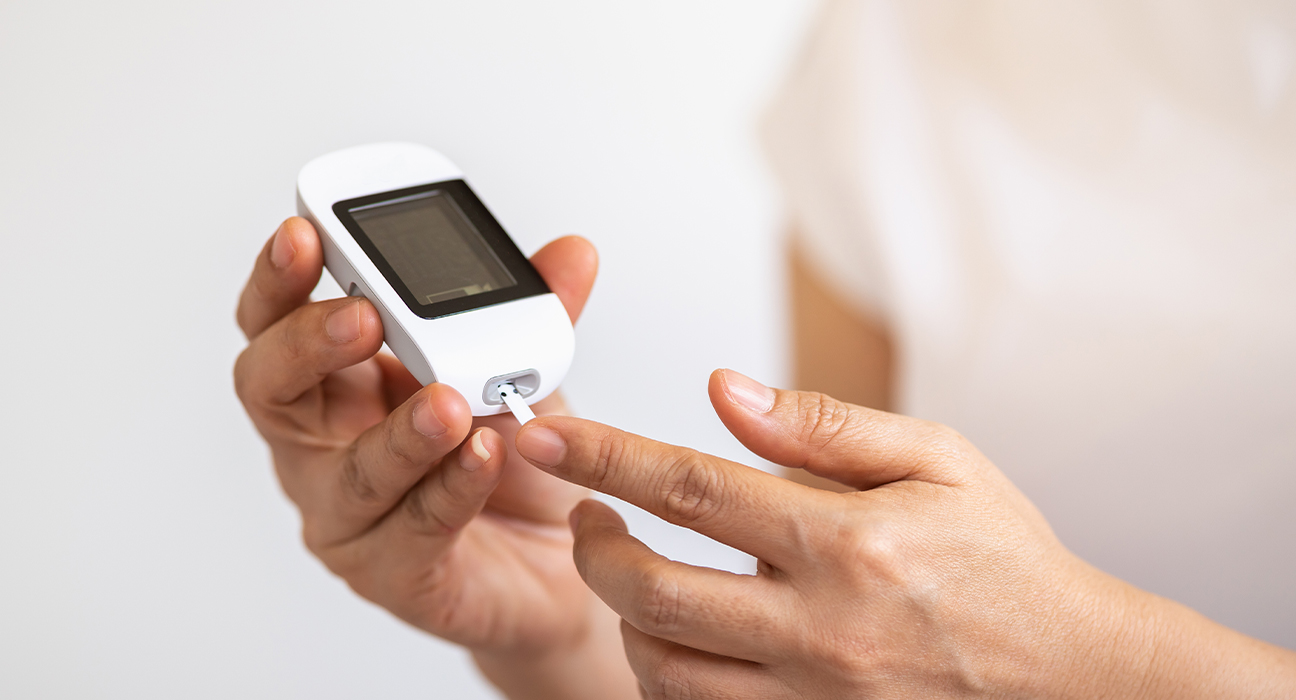India, in recent years, has seen a rapidly increasing incidence of diabetes. In fact, India houses the second largest number of diabetic people in the world. A healthy diet and lifestyle could help people control type 2 diabetes and other aspects related to their health.
To help people keep blood glucose under control and within a normal range, it is recommended to engage in weight management, eat a nutritious diet, exercise regularly, stop smoking, and reduce stress. Medications may be recommended if dietary and lifestyle changes do not help reach and maintain healthy blood sugar levels. However, if someone is diagnosed with diabetes and their blood sugar is only mildly elevated, taking medications might not be necessary.
A 2020 research study concluded that healthy lifestyle practices could help those with type 2 diabetes or with risk factors for the condition. Such measures may slow down or hinder its development, as well as treat or potentially put it into remission. This technique of managing blood sugar can be very beneficial.
Goals for management of diabetes type 2
- Alleviate symptoms of diabetes to improve quality of life
- Attain glycemic control and prevent acute complications
- Identify and manage comorbid conditions like obesity, hypertension, and dyslipidemia
- Prevent cardiac, nervous system, and peripheral vascular diseases
- Prevent infections
Following healthy lifestyle changes may help decrease blood sugar levels:
Aim for a healthy weight
People who are overweight or obese should aim for weight loss as it is a measure toward reducing blood glucose from the diabetic to the nondiabetic range. Two ways to manage weight are eating a healthy, balanced diet and engaging in regular exercise. Consuming fewer calories than the body uses for activities and physiological processes is crucial to controlling weight loss.
Consume a healthy diet
- A healthy diet consists of consuming nutritious foods in appropriate quantities while avoiding or limiting the amounts of non-nutritious foods.
- Foods people can freely eat may include whole grains, such as oatmeal, brown rice, and whole-grain bread; fruits and vegetables, non-fried fish that is high in omega-3 fatty acids, such as salmon and lake trout; lean meat, such as sirloin and white meat from chicken or turkey; nontropical vegetable oils, such as olive oil; unsalted nuts and seeds, legumes, such as beans and peas, and low-fat dairy products.
- Foods and ingredients that people should limit include sugary foods and beverages, such as candy, cakes, jelly, honey, sodas, sweet tea, fruit drinks, and concentrated fruit juices; sweet food additives, such as high fructose corn syrup, dextrose, maltose, fructose, and sucrose; processed and fatty meats, such as bacon, hot dogs, and fatty cuts of beef and pork salty foods; partially hydrogenated and trans fat foods, such as shortening, hard margarine, microwave popcorn, frozen pizzas; desserts, and coffee creamer saturated fat, such as foods containing palm oil or coconut oil
- A diet similar to the Mediterranean diet is recommended by the American Diabetes Association (ADA), which focuses on fruits, vegetables, whole grains, nuts, olive oil, and fatty fish. This eating plan improves blood glucose control.
Get regular exercise
- Getting regular exercise promotes blood glucose management and burns calories, contributing to weight loss. Adequate physical activity also increases insulin sensitivity, which facilitates the entry of blood sugar from the bloodstream into the cells.
- People must aim to get 30 minutes of moderate physical exercise per day on most days, amounting to at least 150 minutes each week. A brisk walk classifies as moderate exercise, according to experts. Alternatively, aerobic activity of 75 minutes per week is equally beneficial.
Stop smoking
Experts recommend quitting smoking to help control blood sugar for several reasons. Smokers have a 30–40% higher risk of getting diabetes than nonsmokers. Smoking also makes it harder to exercise. Smoking increases blood glucose levels temporarily, which poses an additional challenge in maintaining nondiabetic blood sugar levels. This enhances the risks of a person developing complications of diabetes, such as kidney and nerve damage.
Manage stress
Research conducted in 2019 suggested that although stress does not lead to type 2 diabetes, it can worsen it. Stress triggers hormone release, and those hormones interfere with the blood glucose regulation of the body. It also impels a person to engage in activities that make it harder to control blood sugar, such as overeating and smoking. A way to decrease stress involves taking a break from electronics and spending more time in nature.
When to switch to medication?
Please consult with an expert doctor regularly who can determine the best treatment options suited to your condition.
Outlook
According to the American Diabetes Association, type 2 diabetes is progressive, making it more challenging to manage over time. Advances in medical care enable people with diabetes to live longer. However, despite the improvements, type 2 diabetes may decrease life expectancy by up to 10 years.
Researchers cannot calibrate the exact impact of each healthy lifestyle practice on diabetes. However, the prospects for people with type 2 diabetes who have a healthier lifestyle are better than those who do not. It is important to get specialist consultation at the right time to ensure better clinical outcomes. If you are located in Mumbai, you can visit the Department of Diabetology Reliance Hospital, Navi Mumbai. We provide comprehensive services in the diagnosis and treatment of diabetes and diabetes-related disorders. Apart from expert endocrinologists, our diabetic team comprises a dietician, expert ophthalmologist and nephrologist, to treat diabetes related complications. We are committed to deliver the best comprehensive treatment for you.




